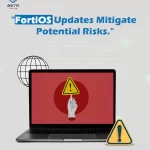Microsoft’s December Patch Tuesday release was particularly significant because it included a critical security update addressing the zero-day vulnerability CVE-2024-49138 in the Windows Common Log File System (CLFS) Driver. If exploited, this vulnerability could grant attackers elevated privileges on affected systems, potentially leading to severe security breaches.
What is the CLFS Driver?
The CLFS Driver is a system component responsible for managing access and manipulation of common log files used by various applications on Windows. Think of it as the traffic controller for log files, ensuring they are accessed and written to correctly.
What is a Heap-Based Buffer Overflow Vulnerability (CVE-122)?
This specific vulnerability falls under the category of a heap-based buffer overflow (CWE-122). It is like a large storage space in memory used by programs. A buffer overflow vulnerability occurs when a program tries to write more data into a specific memory location (buffer) than it can hold. This can overwrite adjacent memory locations, potentially containing critical code or data.
In this case, attackers could exploit this vulnerability by feeding the CLFS Driver with malicious data that overflows its designated buffer. This overflow could potentially overwrite other parts of memory, allowing attackers to inject and execute their own code.

What is the Key Concern with this Vulnerability?
The key concern with this vulnerability is that successful exploitation could grant attackers elevated privileges. Normally, programs run with limited permissions to prevent unauthorized actions. However, exploiting this vulnerability could allow attackers to bypass these restrictions and gain access to higher levels of control on the system. This could enable them to:
* Install malware
* Steal sensitive data
* Disrupt system operations
* Move laterally within a network
Microsoft has addressed this vulnerability with a security patch released in the December Patch Tuesday update. It’s crucial to ensure your Windows system is updated with the latest security patches to mitigate this risk.
The Importance of the December Patch Tuesday
Microsoft’s swift response to this vulnerability through the December Patch Tuesday update is commendable. By installing this update, users can effectively mitigate the risk of exploitation.
Why You Should Prioritize December Patch Tuesday
- Protection against Cyberattacks: The vulnerability could be exploited by malicious actors to gain unauthorized access to sensitive information.
- System Stability: Exploiting this vulnerability could lead to system instability and crashes.
- Data Integrity: Compromised systems could be used to steal or corrupt valuable data.
What You Should Do?
To safeguard your systems, it is essential to:
- Install the Latest Updates: Ensure your Windows systems are updated with the latest security patches, including the December Patch Tuesday update.
- Implement Strong Security Practices:
- Use strong, unique passwords.
- Enable two-factor authentication.
- Keep software and operating systems up-to-date.
- Be cautious of phishing attacks and suspicious emails.
- Regularly Monitor System Logs: Keep an eye on system logs for any unusual activity that may indicate a compromise.
Meta Techs: Your Trusted Cyber Security Partner
At Meta Techs, we prioritize the security of our client’s systems. Our team of experts is dedicated to staying ahead of the latest cyber threats and providing proactive security solutions.
Contact us today to learn more about our comprehensive security services and how we can help you protect your business.
Related posts:
 Fawry comments on cyber attacks and data leaking
Fawry comments on cyber attacks and data leaking
 Effective Policy for data retention policy best practices
Effective Policy for data retention policy best practices
 the Latest fortinet vulnerability 2024
the Latest fortinet vulnerability 2024
 What Is ISO 27001?, Core Principles, Benefits, and Requirements
What Is ISO 27001?, Core Principles, Benefits, and Requirements
 Cylance Protect Antivirus for Your Digital Assets
Cylance Protect Antivirus for Your Digital Assets

